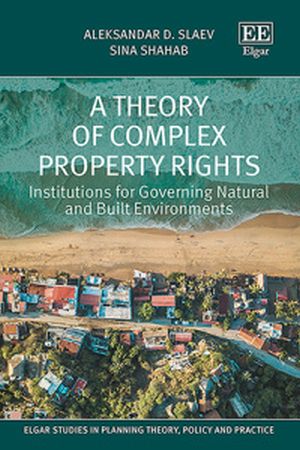
This insightful book examines property rights as complex institutional rule-systems that enable cooperation and shape the governance of resources such as land, water, and housing. It challenges the conventional private–public binary by highlighting the prevalence of hybrid private-common property rights in contemporary governance.
Aleksandar D. Slaev and Sina Shahab offer practical insights for improving resource management by recognising the institutional complexity of property rights and encouraging innovation in their design. They propose a threefold classification of entitlements, i.e., rights to use, rights to manage, and responsibilities for provision and maintenance, and develop a multi-layered framework for analysing how property rights operate and evolve across institutional levels. Bridging theory and practice with a focus on sustainability, the book demonstrates how property rights shape the governance of both natural and built environments.
A Theory of Complex Property Rights is an essential resource for scholars and students in planning and urban studies, environmental policy and sustainability, human geography, and institutional economics, as well as for practitioners and specialists engaged in resource governance.